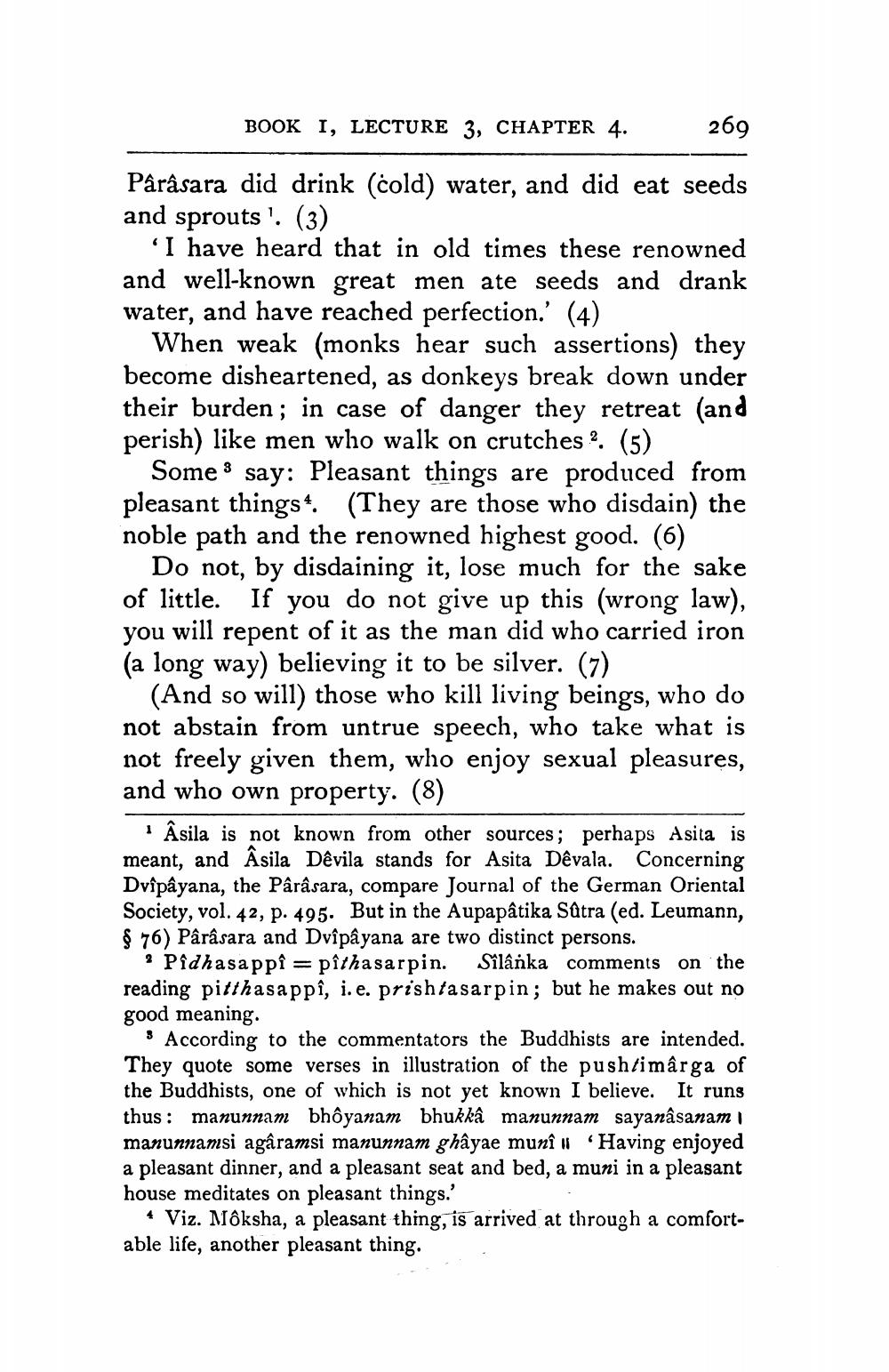________________
BOOK I, LECTURE 3, CHAPTER 4.
269
Pârâsara did drink (cold) water, and did eat seeds and sprouts'. (3)
'I have heard that in old times these renowned and well-known great men ate seeds and drank water, and have reached perfection.' (4)
When weak (monks hear such assertions) they become disheartened, as donkeys break down under their burden; in case of danger they retreat (and perish) like men who walk on crutches 2. (5)
Some say: Pleasant things are produced from pleasant things*. (They are those who disdain) the noble path and the renowned highest good. (6)
Do not, by disdaining it, lose much for the sake of little. If you do not give up this (wrong law), you will repent of it as the man did who carried iron (a long way) believing it to be silver. (7)
(And so will) those who kill living beings, who do not abstain from untrue speech, who take what is not freely given them, who enjoy sexual pleasures, and who own property. (8)
Asila is not known from other sources; perhaps Asita is meant, and Âsila Dêvila stands for Asita Dêvala. Concerning Dvîpâyana, the Pârâsara, compare Journal of the German Oriental Society, vol. 42, p. 495. But in the Aupapâtika Sûtra (ed. Leumann, §76) Pârâsara and Dvîpâyana are two distinct persons.
2 Pîdhasappî pîthasarpin. Silanka comments on the reading pitthasappî, i. e. prishtasarpin; but he makes out no good meaning.
According to the commentators the Buddhists are intended. They quote some verses in illustration of the push/imârga of the Buddhists, one of which is not yet known I believe. It runs thus: manunnam bhôyanam bhukkâ manunnam sayanâsanam | manunnamsi agâramsi manunnam ghâyae munî 'Having enjoyed a pleasant dinner, and a pleasant seat and bed, a muni in a pleasant house meditates on pleasant things.'
Viz. Môksha, a pleasant thing, is arrived at through a comfortable life, another pleasant thing.
=




